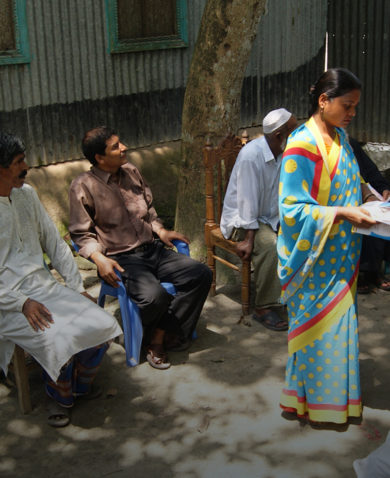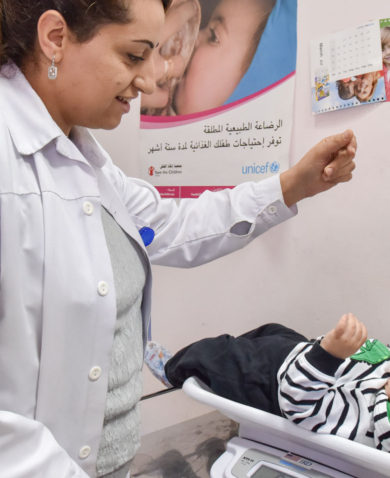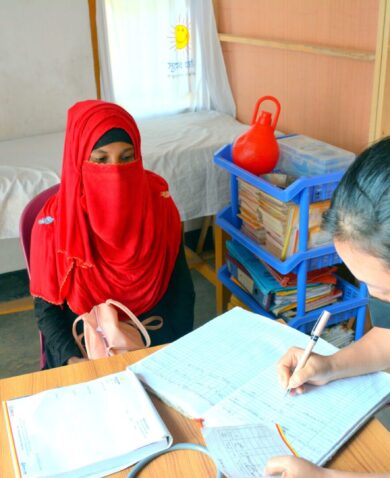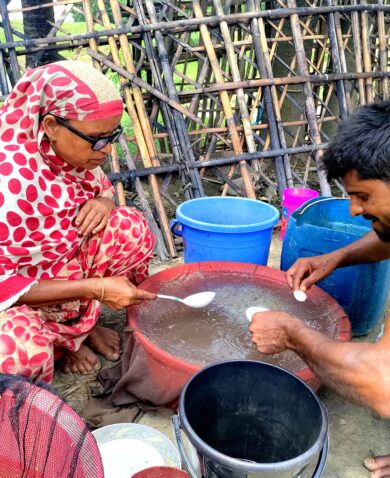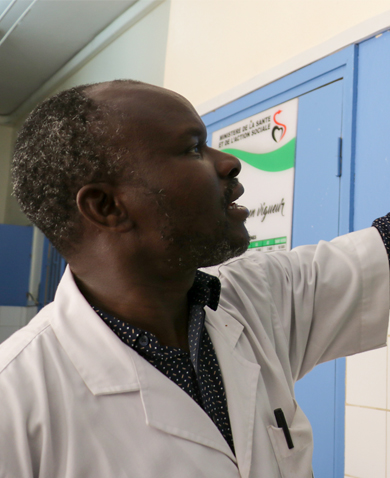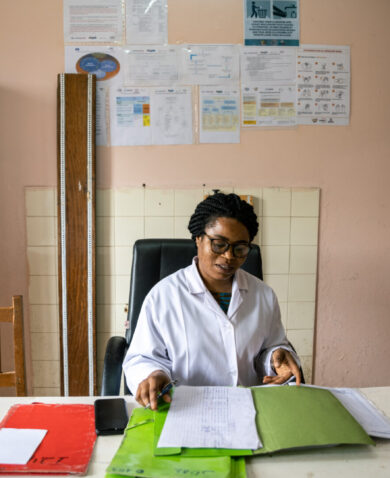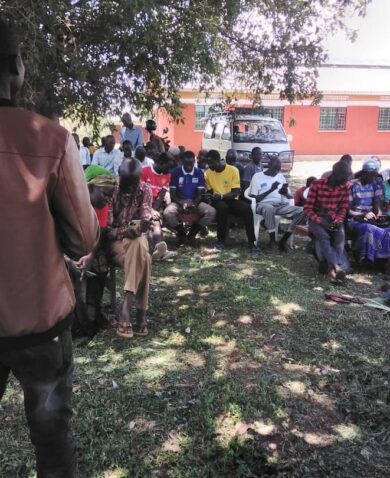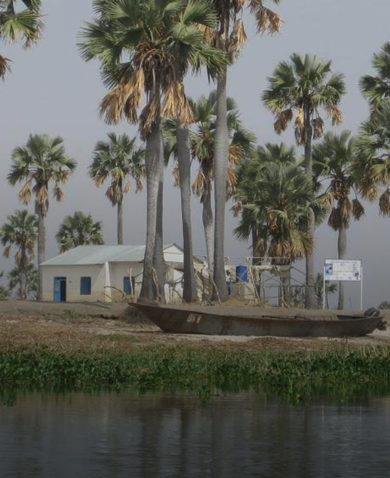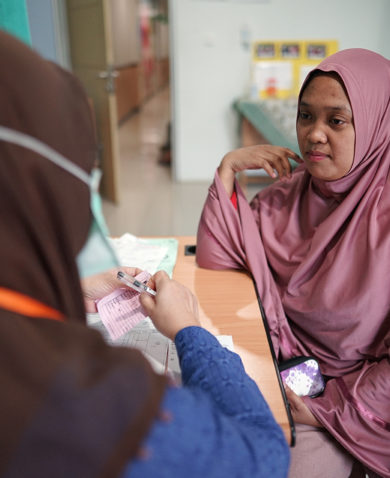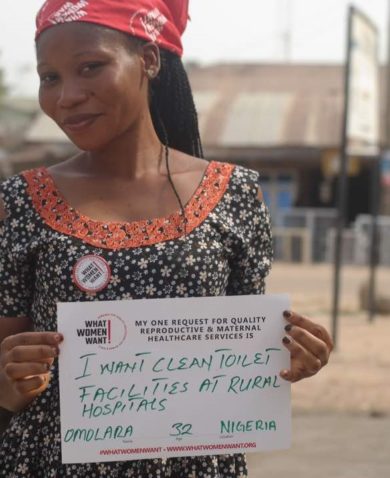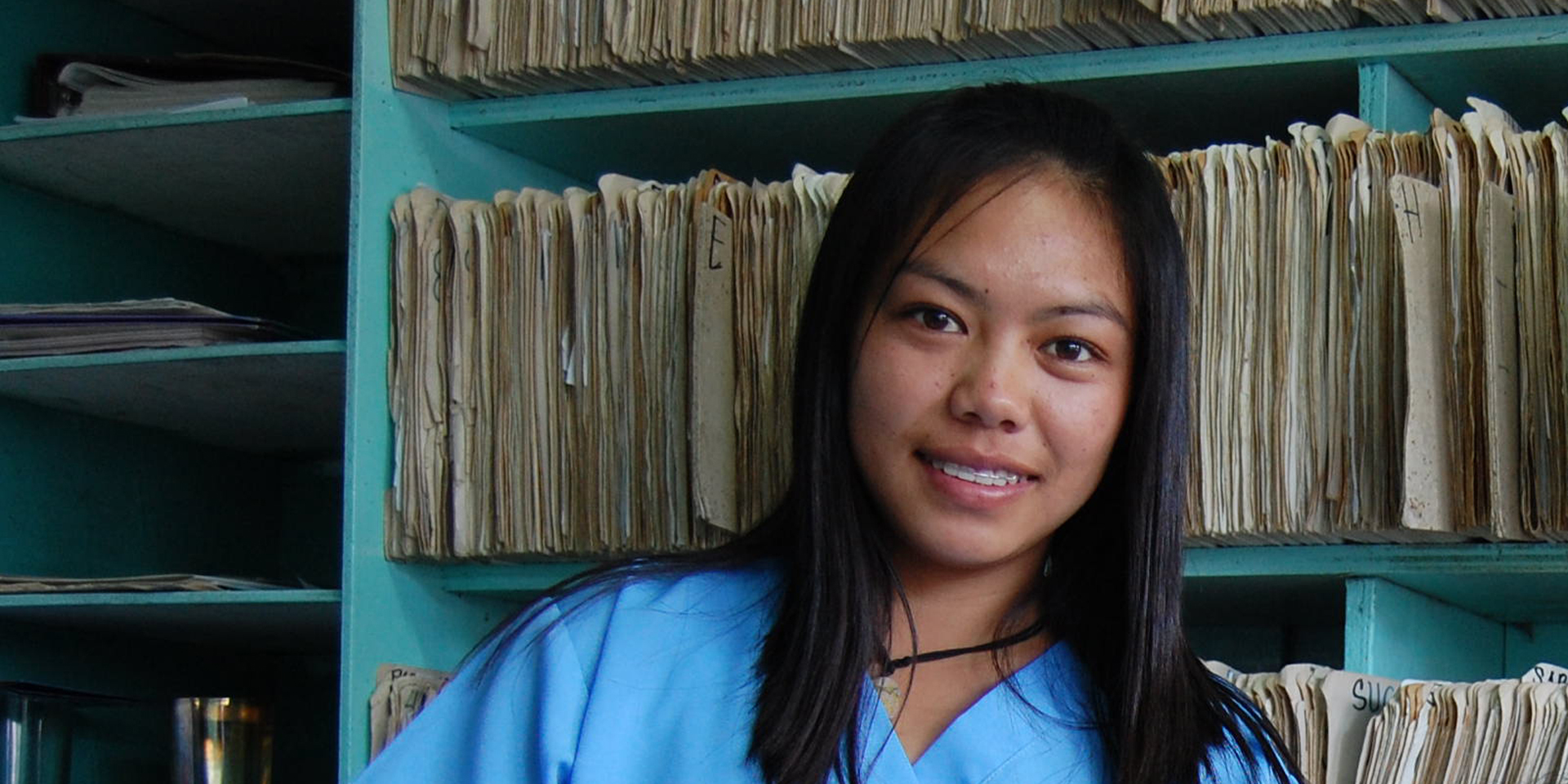
How Are We Responding to the Mental Health Needs of Health Workers?
October 31, 2016 | 3 Minute ReadProviding health care during emergency situations can take its toll on health care workers. Addressing these workers' own health needs is important to ensuring they are able to do their jobs.
Earthquakes, hurricanes, epidemics, outbreaks — when disaster strikes, the immediate needs like food, shelter, and medical aid are obvious. It is easy to see these needs as they often manifest in physical and more tangible ways. Yet the residual mental health effects of any crisis, be it a natural disaster, conflict, or a health outbreak like Ebola, are not always seen or obvious days, weeks, or years later. Front-line health workers, which range from community health workers to professional cadres of nurses and doctors at local community clinics, are providing immediate care for the physical and mental health needs of the community. How are we, then, responding to the mental health needs of health workers themselves?
Why is mental health care for health workers important?
In emergency or humanitarian situations, the main priorities are the community members affected. However, we need health workers to meet these priorities. Currently, there is a global health workforce shortage, which means there are not enough health workers to meet the needs of their communities. There are various factors contributing to the health worker shortage, but one of the challenges is keeping health workers at their posts (also known as “retention”). Reasons for leaving include limited career mobility, low job satisfaction, and lower wages than other posts. While the evidence base is sparse, mental health issues like burn-out and even secondary trauma (experiencing trauma from hearing firsthand about it) can contribute to retention challenges and make it even more difficult to keep health workers in their communities during a humanitarian or emergency crisis.
Shouldn’t we focus on ensuring mental health care for affected communities in crisis first?
Yes, but seeing, hearing, and treating countless trauma-based issues on a daily basis can take a mental and physical toll. Even if the issue is not the result of a humanitarian or emergency crisis, lack of access to health care services can result in preventable deaths and additional stress for those impacted. Losing a family member, experiencing intimate partner violence, or witnessing violence — these are all issues that health workers can face in their communities. During a humanitarian crisis, what you then see is protracted mental health stress in the communities and, subsequently, for health workers treating community members .Advocacy efforts, such as MSF’s Not A Target campaign and the Safeguarding Health in Conflict Coalition, highlight the challenges medical providers face working in conflict zones where they are not only defending the safety of their patients but also that of the health facilities and their own cadres in affected communities. While it is important to focus on expanding mental health care services in general, making sure there are systems in place to respond and enough health workers to provide the mental health services needed, we also need to highlight the mental health needs of health workers to ensure that they are supported throughout a crisis to provide essential services.
What is being done about mental health care for health workers?
Support for mental health care is increasing, though it is not necessarily directed all at health workers. Earlier this month, mental health practitioners and organizations worldwide, including the World Health Organization (WHO), observed World Mental Health Day, an annual day that focuses on advocacy, education, and awareness for mental health care. This year’s focus was on “psychological first aid,” which advocates for providing the appropriate training and framework for first responders, including front-line health workers, to respond to communities in crisis. While psychological first aid does not replace a mental health care provider or other mental health and social services, it does provide a framework through which responders can better understand, assess, and respond to immediate needs of an individual during a crisis. Think of it as front-line triaging for community members and facilitating treatment early for health workers down the line.
Also this month, the theme for CORE Group’s Fall Global Health Practitioners Conference was “Community Health Transitions: Leading for Impact,” with mental health and emergency response as one of the tracks. One of the sessions highlighted the revised and recently launched mhGAP (Mental Health Gap Action Program) Intervention Guide by the WHO. This guide, which was last updated in 2010, not only provides more recent tools, guidelines, and evidence-based materials, but also a more community health worker-focused approach to the care for mental, neurological, and substance-use disorders. While the focus of the conference was less on mental health care for health workers, mental health still played an important role with packed discussions on mental health care in humanitarian contexts, as well as integration into HIV, MCH, and nutrition care services.
By expanding resources and advocacy for mental health, we are making strides toward responding to the needs of health workers. What we need next are more platforms and opportunities to discuss mental health through the lens of front-line health workers. As we develop programs and implement activities, we need to ask again and again:
How are we responding to the mental health needs of health workers?








